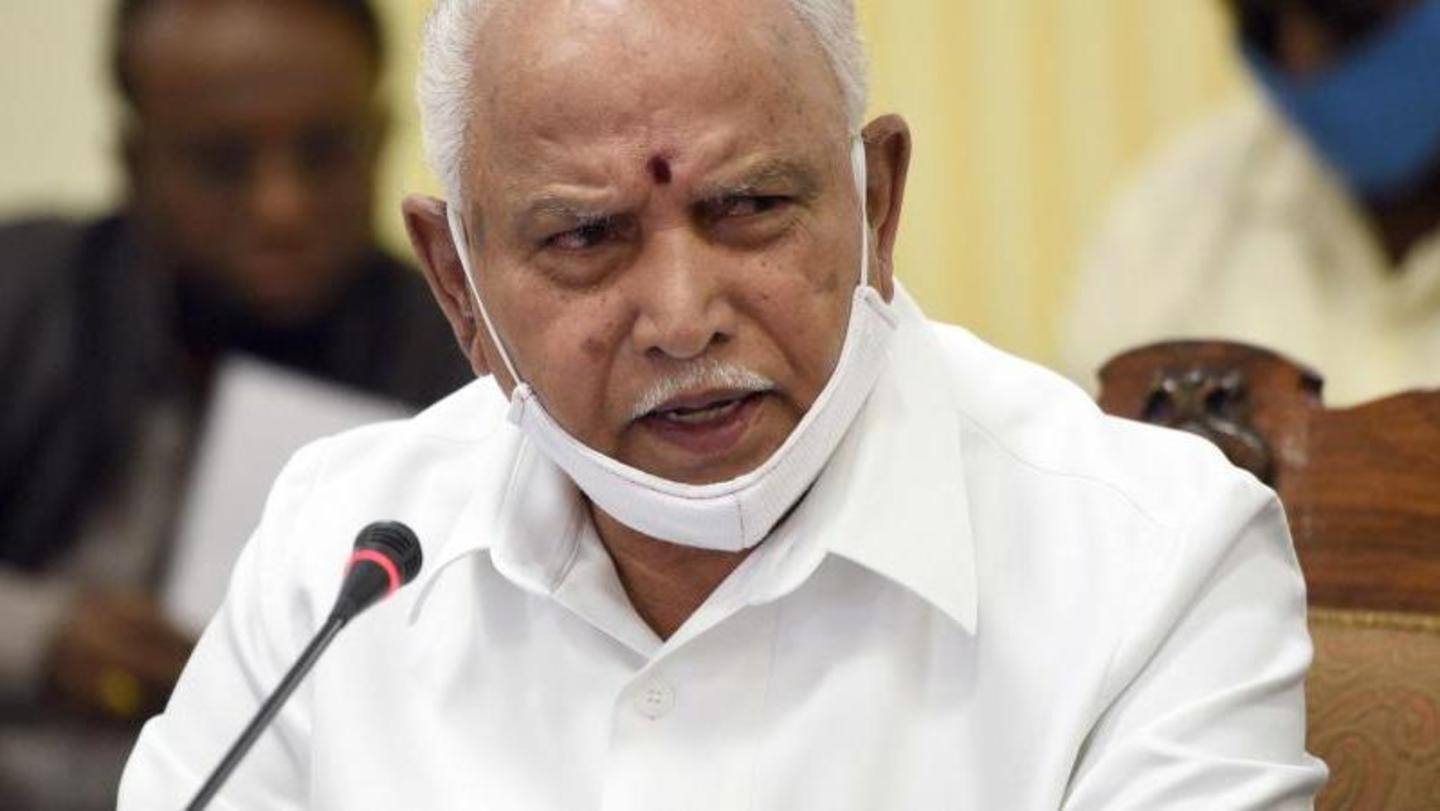
Supreme Court puts on hold corruption case against BS Yediyurappa
What's the story
The Supreme Court on Monday granted relief to Karnataka Chief Minister BS Yediyurappa as it put on hold a case involving corruption allegations against him.
Yediyurappa has been accused of a role in the alleged illegal allotment of 24 acres of government land to private individuals and thereby incurring huge losses to the taxpayers.
Here are more details on this.
Details
Bench led by CJI Bobde issues notices on the matter
A top court bench led by Chief Justice SA Bobde has also issued notices to the state, the Lokayukta (the anti-corruption watchdog), as well as the complainant seeking their responses on Yediyurappa's plea.
In his plea, the Chief Minister had challenged the Karnataka High Court's order that had asked a special court to take note of the allegations against him.
Context
What is the case all about?
The case dates back to 2012 when Yediyurappa and another state Minister Katta Subramanya Naidu were accused of illegally allotting 24 acres of government land to private entities.
The primary allegation against them is that the leaders misused their position and caused losses to the state machinery by waiving service charges and the development fee.
Developments
Last December, HC had dismissed Yediyurappa's plea
In December last year, the Karnataka High Court had dismissed Yediyurappa's petition seeking to quash criminal proceedings against him in the case.
The High Court had then directed the Lokayukta special court to monitor the investigation ordered by the courts with respect to the misconduct and the alleged criminal offenses committed by the MPs and the MLAs involved.
Other details
Case was registered on February 21, 2015
The case involves the illegal denotification of land in Whitefield IT Corridor, which had been acquired by the state-run Karnataka Industrial Area Development Board in 2006 for an IT project.
Yediyurappa was the Deputy Chief Minister in the BJP-JD(S) coalition government at that time.
The case was registered under the Prevention of Corruption Act on the directions of the Lokayukta court in February 2015.